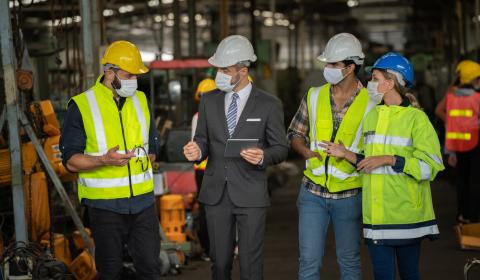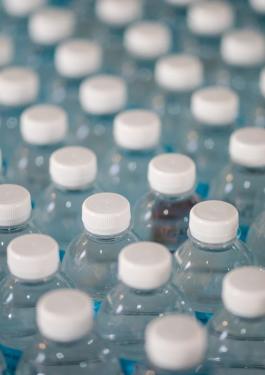
A day in the life of a Bureau Veritas auditor
Bureau Veritas is a world leader in testing, inspection and certification. We certify compliance to a range of standards, including those from various industries and regulations. And our auditors are specialists on particular topics, working closely with companies that seek to build trust with their stakeholders.
But what does an auditor do every day?
Hitting the road with Szymon Kołodziejczyk
For Szymon Kołodziejczyk, Auditor and Global Product Manager for Biofuels and Biomaterials at Bureau Veritas Poland, the journey to becoming an auditor in the bio-based materials field began with a philosophical wish to be “close to the ground.”
Auditor and Global Product Manager for Biofuels and Biomaterials
Bureau Veritas
“I grew up in a big city, but I love nature, agriculture and horticulture, and I’ve had a lifelong interest in the environment,” he says, adding that professional experience in the subject that you’re covering is essential. “I began with agricultural studies. Shortly after graduating, I started working for one of the largest biofuel producers in Poland, and became an internal auditor there before joining Bureau Veritas.”
Between keeping updated on new regulations and standards and performing onsite audits, Szymon also values a healthy work/life balance. Here, he describes his average workday:
8am
After waking up early and powering up with a cup of coffee, I start my day with office work. My role has expanded beyond auditing to include coordination of the certification processes for several systems and programs. I communicate directly with certification program owners and support our worldwide auditor network on professional and technical aspects. They work with complicated programs that are subject to frequent updates, and I spend a lot of time answering questions regarding requirements. I also organize recalibration sessions when needed.
10am
Audits can be performed virtually, but are usually done on site. This requires a lot of planning, to prepare the practicalities and evaluate pre-submitted documentation. I’m currently working with a producer of wooden boards, which uses heat from biomass in the production process. The company has enlisted us to verify their compliance with the Sustainable Resources verification program (SURE) for the use of biomass in heat and electricity production. Before heading to their production facility, I spend a few hours finalizing my preparations.
1pm
After lunch, I get in my car and head to the wooden-board producer’s site. An audit can take anywhere from a few hours to 10 days of multiple visits, but it’s the highlight of my job. It’s a great opportunity to be close to businesses and properly understand their needs and challenges.
Once on site, I meet with everyone involved in obtaining the certification. I seek to understand which employee is responsible for what activity, and I explain the audit process and possible outcome. Then, I tour the site and interview team members before comparing my findings with a checklist for the program in question. Before leaving, I give a summary of my findings. An auditor’s role is not always easy, and this is a point at which it can get tricky. Sometimes I have to deliver the difficult news that the company simply isn’t compliant. However, when I indicate areas in need of improvement, it enables a company to implement corrective measures and get back on the sustainable development path.
4pm
After completing my audit, I head to the office to write a report with my conclusions and recommendation for certification. For every audit, this report is submitted for review by our technical team, which may raise concerns if there are any doubts about the auditor’s conclusion. If the outcome is positive, the report is sent to the program owner for certification.
6pm
Once my office work for the day is completed, I head home (or exit my home office) to spend the evening with my family. Maintaining a healthy work/life balance is important, but some evenings I might finish later, as I have a lot of responsibilities.
For example, I often have to make certification decisions on other auditors’ work as part of running the international competence center. I really trust the scientific data about climate change, and it’s a very important driver for me to go the extra mile. I believe it’s the same for many of us in this field. Our clients’ organizations and our team responsible for sustainable development standards are filled with people working very hard toward a greener future.
Sustainability certification with Bureau Veritas
Szymon works across several different standards and programs focused on biomaterials and sustainable development. These include the International Sustainability and Carbon Certification (ISCC), ISCC Plus for sustainable development for bio-based materials and ISCC CORSIA, for sustainable aviation fuels. He also works on certifying to REDcert programs, based on the European Union’s Renewable Energy Directive (RED). One of them is SURE, which enables companies to prove that their biofuels, bioliquids and biomass fuels are sustainably produced in compliance with EU sustainability criteria.
Want to find out about our biomaterials certifications or available roles in auditing? Learn more


